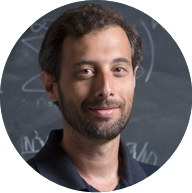The National Science Foundation has awarded a $500,000 grant to Stephen Levy, an assistant professor of physics at the Binghamton University, for research that may potentially lead to development of complex sensors that can rapidly detect even small quantities of hazardous materials.

Stephen Levy completed his bachelor’s degree at the University of Richmond and his doctorate at the University of California, Santa Barbara. Levy then worked at the Stanford Linear Accelerator Center and at the University of Chicago/ Fermi National Accelerator Laboratory. Following that, he studied biophysics at Cornell University for four years and joined Binghamton University as a faculty in 2010.
Levy is specifically interested in conducting research on travel of DNA through carbon nanotubes. These one atom thick tubes are cylinders made from a carbon sheet. Fluids flow differently through these nanotubes when compared to large pipes. Scientists, presently, do not know the reason for this unique type of fluid flow.
Carbon nanotubes may help understand certain aspects of molecular transport into cells. These tubes may also aid in the development of a new method for DNA sequencing.
DNA information can be considered as a code made up of four chemical bases which pair up in various unique combinations. Certain “markers” or combinations are distinct to certain molecules or animals and can be used for identification.
Levy has developed a method to study a single carbon nanotube at a time when compared to other labs that thousands of nanotubes at the same time. His team has discovered a novel method to simultaneously observe fluorescent, electrical, and optical properties of single-stranded DNA molecules.
The present study could help detect specific molecules electrically. In places such as post offices, where large volumes of parcels and other items go through, a sensor that can rapidly identify dangerous molecules by their DNA marker would be very useful.